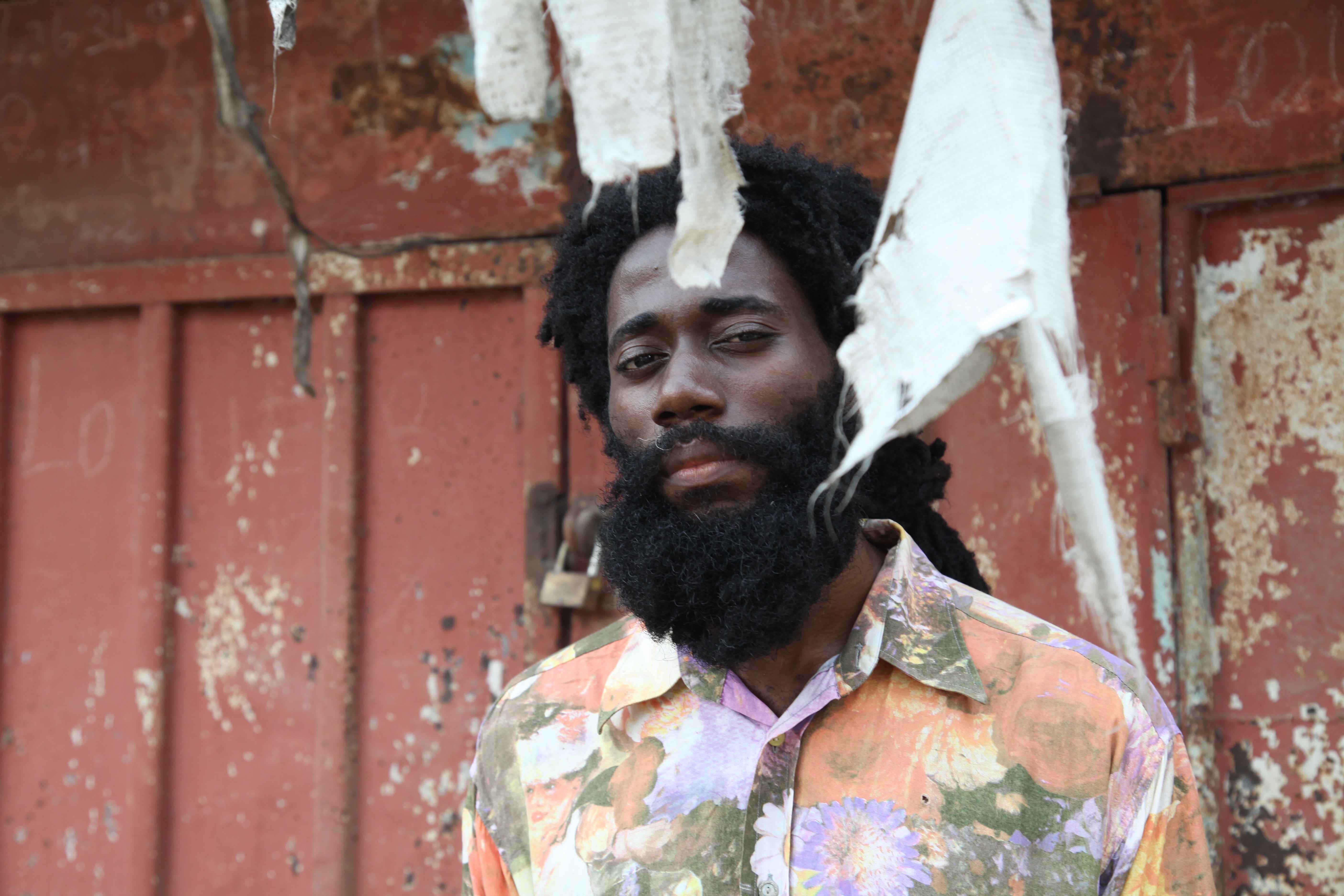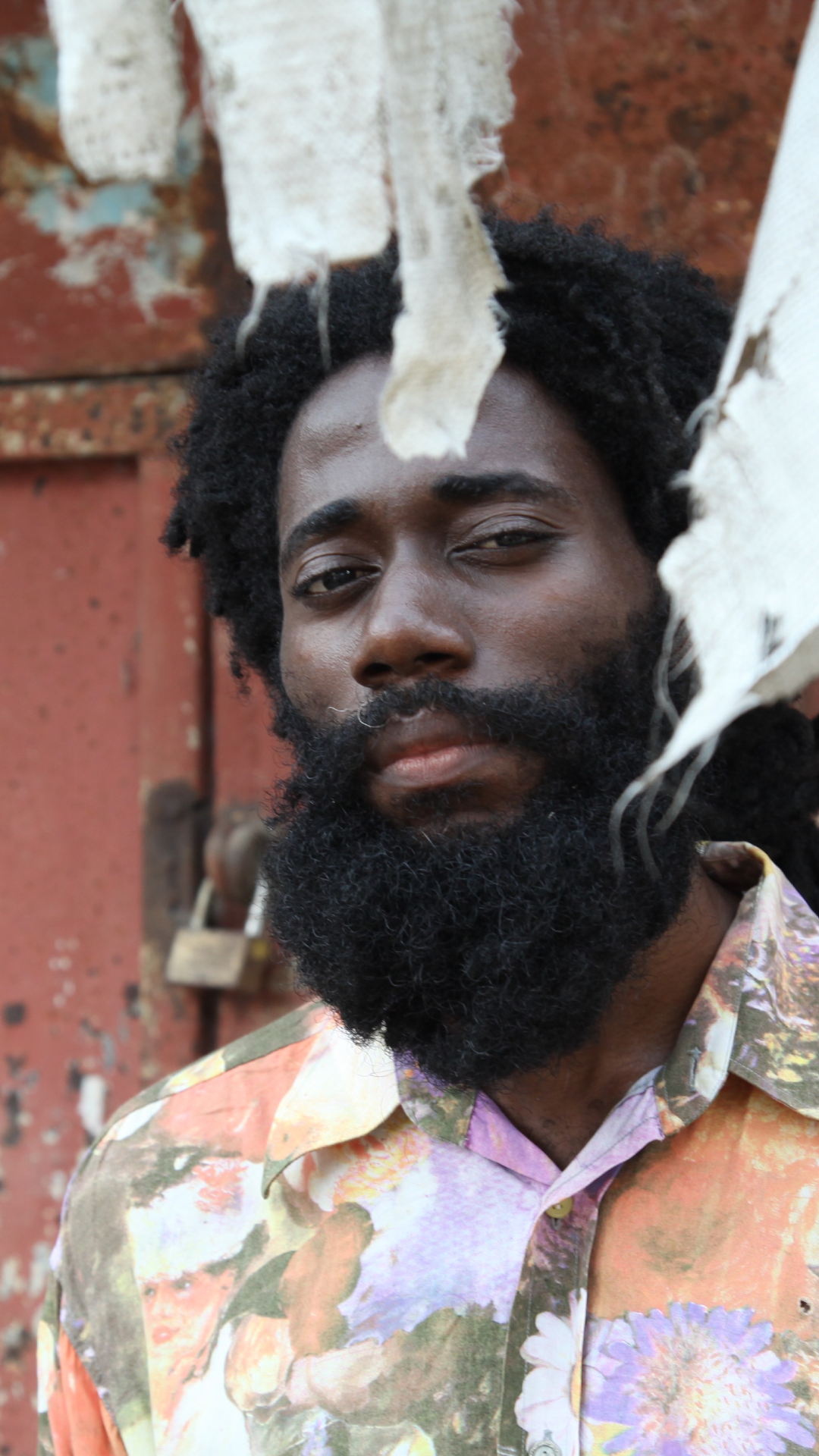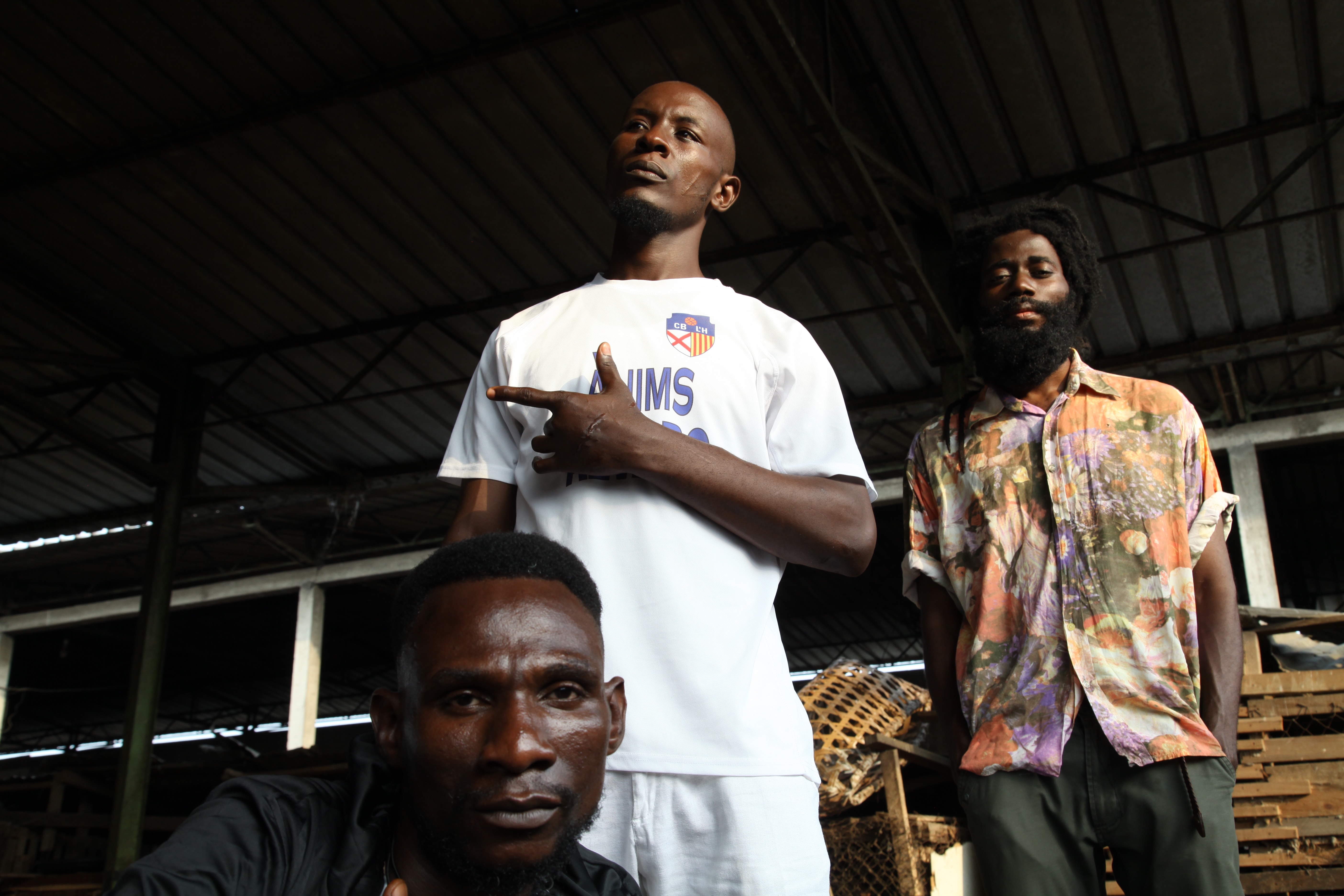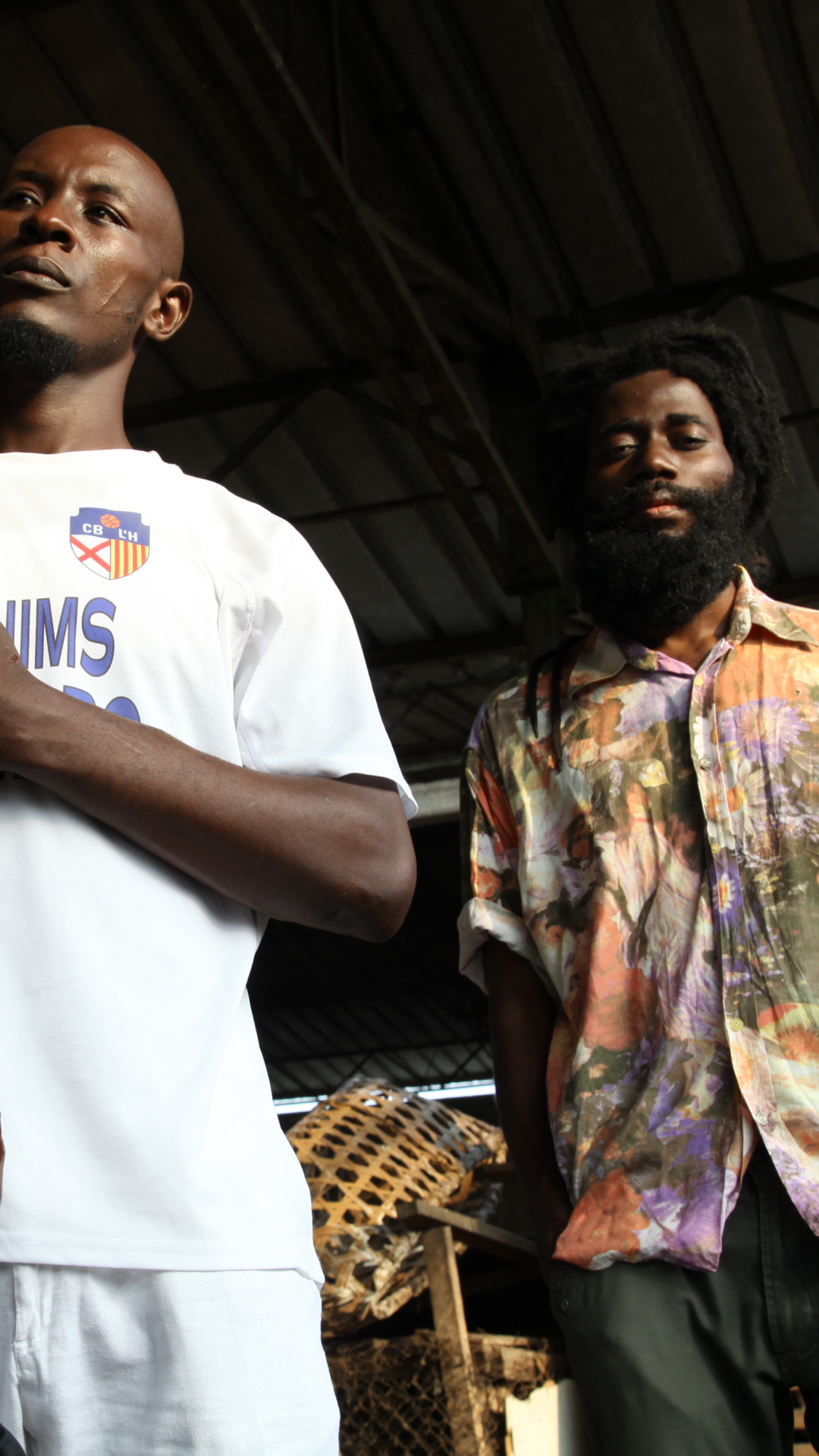It seems that it’s in the most desperate situations, in the darkest folds of this bitch of a life, that some people manage to find the luminous ideas that will give meaning to their existence, by giving light to their fellow sufferers. This is exactly what happened to Steve Happi, the central character in the film directed by Dione Roach, with whom he founded Jail Time Records. The year was 2018, and this tall man with dreads longer than his arms was at the bottom of the hole, in this case: Douala Central Prison.
The cause: after his father’s death, Steve and his brothers get into a dispute with his father’s family over his father’s burial. Steve finds himself accused of his father’s death, and incarcerated. It’s a story worthy of a Nollywood movie, but one that nevertheless earns him two years in the can awaiting a verdict that will finally clear his name. The Cameroonian justice system is impenetrable, and often blocked by a backlog of cases. Two years is a long time. But it was during this enforced stay that Steve met Dione Roach, a young Italian working for an NGO who had discovered the artistic potential of the inmates: with the authorization of the prison authorities, she set up a recording studio within the prison itself. Steve, who has always practiced music, begins to mentor some of the prisoners: coach, artistic director, and basically… educator.
“Making music in prison has a depth and power all its own. It gives you dignity, hope and a reason to fight! It’s the instrument you lean on to keep going,” recounts Steve in the film, as we follow a recording session in the studio with walls decorated by the inmates. The producer and sound engineer is in front of his computer, and like the prisoners, he takes obvious pleasure in hearing the flow of one of their comrades as, little by little, on his instrumentals, the track takes shape.
In the wake of the studio, a label was born, the aptly named Jail Time Records, responsible for publishing these urban productions born in prison, but also after detention. Steve continues to follow and work with these youngsters after they are released. Djafar, D.O.X., and Moussinghi, featured in the film, are among them, and have not lost faith. “I’ve been in prison five times,” says Moussinghi. “The last time, the police shot me and I ended up there again. That’s when it all started with Jail Time. I saw changes taking place, and I began to hope.“



